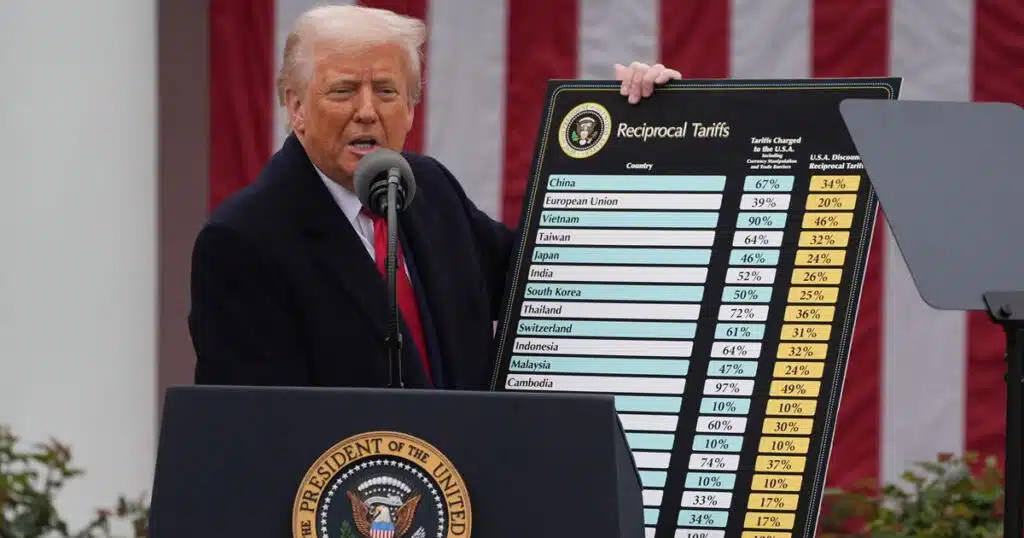
Federal Judge Takes Control of US Government
Just days after the Supreme Court again made it clear that the separation of powers is sacrosanct, Indira Talwani, an Obama appointed federal judge in Massachusetts, has taken the unprecedented step of ordering the government to fund Planned Parenthood, purporting to enjoin implementation of a portion of the Big Beautiful Bill (BBB) passed by Congress.
The BBB imposed a one-year ban on state Medicaid payments to health care nonprofits that offer abortions and also received more than $800,000 in federal funding in 2023. Three days after the president signed the BBB into law, Planned Parenthood sought a temporary restraining order (TRO). Without hearing from the government, complying with federal rules, or even providing an explanation, within hours after the filing, Talwani issued a TRO for at least 14 days that requires the government to spend money Congress declined to appropriate.
Four days later, the administration asked Talwani to dissolve the TRO because of its obvious infirmities. Instead, she doubled down, issuing an amended TRO that satisfied the technical requirements she had previously ignored.
I work with Planned Parenthood’s very capable lead lawyers. Without the facts or the law on their side, they did the right thing. They found a far-left federal judge who has repeatedly ruled against the Trump administration and is willing to create a constitutional crisis to advance a political cause.
Numerous Supreme Court decisions explain that merely because something is legal does not mean that Congress must fund it, or continue to do so. Just a few weeks ago, in Medina v. Planned Parenthood, the Supreme Court rejected Planned Parenthood’s challenge to South Carolina’s right to exclude Planned Parenthood from its Medicaid program. For more than 40 years, the Hyde Amendment has generally prohibited federal funding for abortion, and the court has repeatedly held that the government is under no contrary obligations (e.g., Maher v. Roe and Harris v. McRae).
Talwani’s order violates Article I of the Constitution, which could not be more clear: “No Money shall be drawn from the Treasury, but in Consequence of Appropriations made by Law.” Article I vests the power to authorize spending exclusively in Congress. In OPM v. Richmond (1989), the Supreme Court confirmed that the Appropriations Clause conveys a “straightforward and explicit command” that no money “can be paid out of the Treasury unless it has been appropriated by an act of Congress.”
There is no basis in the Constitution or any Supreme Court decision to support the right of a court – any court – to interfere in congressional decisions to fund, or cease funding, a private organization. To the contrary, in Rust v. Sullivan (1991), the Supreme Court held that “the Government has no constitutional duty to subsidize an activity merely because the activity is constitutionally protected.”
Planned Parenthood’s main argument is the equivalent of jury nullification. Because it is the dominant provider of abortion services in the United States, limiting its ability to carry out its mission would deprive women of access to such services. Even if true, that is a political argument unsuccessfully made during the last election and during the debate over the BBB.
Planned Parenthood asserts that the BBB is an unconstitutional bill of attainder because the criteria for defunding effectively single it out. That absurd argument flies in the face of an unbroken line of cases that apply the Article I prohibition on bills of attainder only to criminal or quasi-criminal punishment. Congress often funds, or defunds, individuals and organizations. In Nixon v. Administrator of General Services (1971), the Supreme Court rejected the proposition that an individual or defined group is subject to a bill of attainder merely because Congress singles them out. Talwani did not mention bills of attainder in her amended TRO.
Planned Parenthood also claims that defunding its efforts constitutes viewpoint retaliation under the First Amendment, and a violation of the equal protection clause of the Fifth Amendment. In Rust, the Supreme Court rejected similar claims. In its papers, Planned Parenthood cites no Supreme Court case compelling Congress to appropriate spending on these grounds.
Nonetheless, in her amended TRO, Talwani relied on the First and Fifth Amendments to justify issuance of the TRO. She also rejected the government’s concern that it would be harmed if it paid money to Planned Parenthood, because, she averred, the government likely would instead use the funds to pay another provider. By that logic, a mugger is only taking money that his victim would probably spend on something else.
The first hearing is on Friday. If Talwani does not relent, she can expect an unpleasant rebuke from appellate courts.
This article was originally published by RealClearPolitics and made available via RealClearWire.



